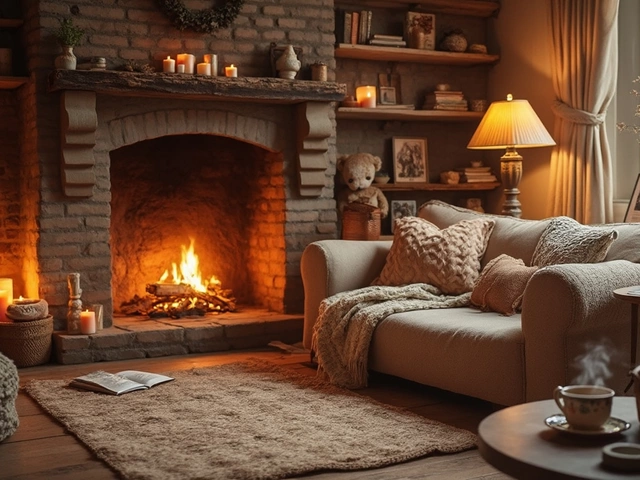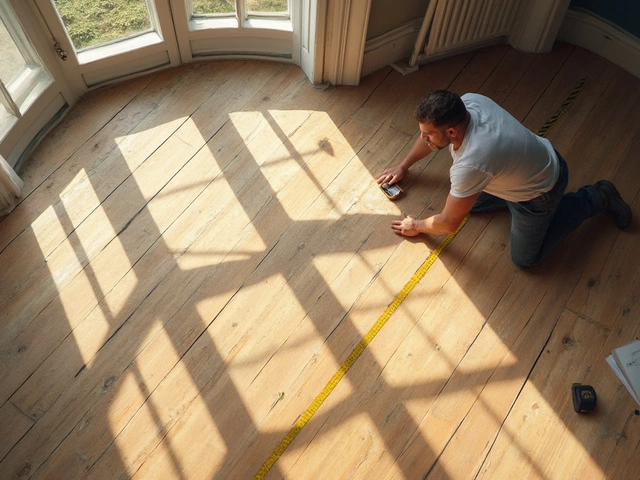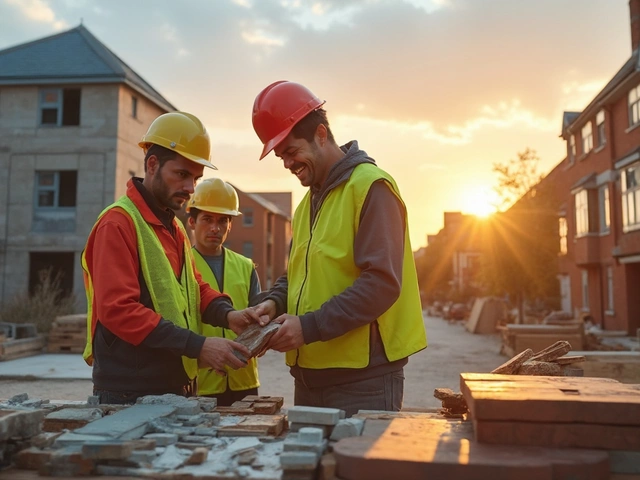
If you've ever talked to someone who's been through a bad home building experience, you know how much stress it can cause. The most trusted home builder isn't just about pretty pictures or flashy ads—it's about who will actually deliver what they promise without cutting corners. There's a big difference between a builder that's easy to reach with honest answers, and one that just nods along and disappears when problems pop up.
You'll want to dig deeper than glossy brochures. Trust is built on solid proof—like transparent quotes, detailed contracts, and full access to talk to previous clients. Don't be afraid to ask lots of questions. If a builder shuts you down or dodges, that’s a warning sign. Always look for details: timelines, warranties, lists of included features, and who exactly does the actual work. Sometimes companies just manage projects and sub everything out, which makes accountability tricky if anything goes wrong.
Start by looking up reviews, but don't just stop at star ratings. Read the low scores to see what really happened when things didn't go perfectly. If you know someone in your neighborhood who built recently, ask what they'd change if they could do it all over again. You’ll get real answers about what worked and what didn’t.
- Why Trust Matters in New Builds
- Spotting a Reliable Home Builder
- What the Reviews Really Say
- Common Red Flags and How to Dodge Them
- Tips for Comparing Builders
- What Real Homeowners Wish They Knew
Why Trust Matters in New Builds
Building a home is likely the biggest expense you'll ever face. When you’re talking about new builds, mistakes are expensive—sometimes they even show up years later, when fixing them hurts your wallet and your sanity. That’s why picking the most trusted home builder isn't just a nice-to-have; it seriously affects your safety, comfort, and resale value.
A builder you can't trust might cut corners on insulation, use off-brand electrical parts, or let water-proofing slip—just to save a few bucks. The punchline? You foot the bill down the line. Insurance claims on new homes are up 15% compared to five years ago, mostly due to builder errors.
If things go wrong—leaky roofs, uneven floors, electrical issues—the builder’s reputation suddenly matters. A trustworthy builder honors warranties, fixes mistakes, and doesn’t vanish after closing day. Shady builders, on the other hand, can leave you on the hook for repairs and a fight just to get them to answer your calls. Jumping through hoops isn’t just annoying—it’s expensive.
Trust also comes down to what you see and what’s hidden behind the walls. The best builders let you tour sites, talk with craftspeople, and check progress as often as you want. They’re upfront about who’s working on your home and what’s actually included. Here’s where buyers got burned, according to a survey by HomeBuilder Report 2024:
| Problem Area | % of New Homeowners Impacted |
|---|---|
| Poor communication from builder | 37% |
| Unfinished or rushed work | 29% |
| Warranty issues ignored | 19% |
| Hidden extra charges | 15% |
Add it up, and trust isn’t just comfort. It’s your insurance policy against things going sideways. Before you sign a contract or hand over a deposit, double-check how your builder has treated others in the past. Ask for specifics about what happens if something goes wrong—and pay attention to how clearly they answer. If they’re vague now, they’ll probably disappear when you need them most.
Spotting a Reliable Home Builder
The hunt for the most trusted home builder really starts with doing your homework, not just going with the first name you see on a billboard. You need facts and proof, not just promises. The best builders stick out because they’re upfront, organized, and don’t try to hide any details from you.
Here are some dead giveaways you’re dealing with a solid builder:
- Licensing and Insurance: Any professional builder will be properly licensed in your state and carry both general liability and workers’ comp insurance. Skip anyone who can’t show proof.
- Clear Written Contracts: A trustworthy builder spells out everything—price, schedule, payment plan, and exactly what you’ll get for your money. No vague promises, no handshake deals.
- Warranty Coverage: Standard builder warranties in the U.S. usually run one year for workmanship and up to ten years for structural issues. The most reliable companies will hand you warranty info up front and explain what’s covered—don’t settle for less.
- Local Track Record: Check out completed homes in your area. Reliable builders should have plenty of local references that aren’t cherry-picked. You want to see houses finished at least a year ago so you know they last.
- Communication: If the builder calls back quickly, answers questions directly, and doesn’t dodge tough topics, that’s a good sign. This matters big-time once construction starts.
- Industry Memberships: Look for membership in groups like the National Association of Home Builders (NAHB). Not all “members” are equal, but those who stay active tend to care about quality and keeping up with codes.
Don’t just take their word for it. Ask for names and numbers of recent buyers. Show some curiosity—ask these homeowners if they had any surprises or regrets, and if the builder made things right. A reputable company won’t get twitchy about you digging into their reputation.
If you’re not sure where to start, local real estate agents and building inspectors are great sources for straight answers. They see which companies keep customers happy and which ones leave a mess behind. Always trust what you see and hear from neutral third parties over what you read in a glossy brochure.
What the Reviews Really Say
When it comes to finding the most trusted home builder, reviews are like gold. But they aren’t all equal. Some reviews talk about great walk-throughs and friendly staff, but the ones you want to focus on mention build quality, how problems got fixed (or ignored), and what happened after move-in.
The Better Business Bureau (BBB) says that most complaints against builders are about unfinished work, warranty issues, and poor communication. In 2024, the BBB reported that home building companies received almost 13,000 complaints nationwide. That’s a huge number, and the top 10 builders handled less than 5 percent of these—meaning, big names don’t always get everything right, but issues often get more attention when reported.
"A good review doesn’t just say, ‘Love my house.’ It spells out exactly how the builder handled surprises and whether they stood by their promises." – Angie Hicks, founder of Angi.com
From recent trends on forums and Reddit: happy homeowners usually mention that project managers gave regular updates, resolved punch lists fast, and followed up months after move-in. On the flip side, negative reviews are full of details about leaks, slow or missing warranty repairs, and getting passed between departments.
There’s also an increase in buyers crowdsourcing opinions in local Facebook groups, so you’re likely to find long threads on everything from project delays to costs for upgrades. Here’s a quick table with common review factors that pop up the most:
| Review Factor | Positive Mentions (%) | Negative Mentions (%) |
|---|---|---|
| Communication Responsiveness | 62 | 38 |
| Construction Quality | 59 | 41 |
| Warranty Follow-up | 47 | 53 |
| On-time Completion | 35 | 65 |
| After-sale Service | 51 | 49 |
So the next time you read a review, cut through the fluff and look for specifics—who did what, when, and how. If you see a builder’s name that pops up with happy updates long after people move in, it’s usually a safer bet. Ask around, compare what people say, and look for patterns before making your decision.

Common Red Flags and How to Dodge Them
When you're picking a builder, a few warning signs pop up more often than you'd think. If you spot these, don't just hope for the best—take them seriously and look for another option if needed. Here’s what to watch for and why these things matter so much.
- No fixed price contract: If a builder won’t guarantee the price for your new build, or keeps things vague in the paperwork, your budget could get blown apart by sky-high “unexpected” costs later.
- Poor communication: It sounds basic, but if they don’t answer emails or calls on time now, it only gets worse during the build. You want someone who keeps you updated, not someone who ghosts you when issues come up.
- Reluctance to provide references: A trusted home builder invites you to talk to former clients. If your builder dodges the request or always has an excuse, that’s a major red flag.
- No detailed timeline: You should get a clear build schedule, not just a vague estimate. If a builder dances around delivery dates and refuses to put timing in writing, your project might never finish—or drag on at your expense.
- Too-good-to-be-true deals: If a quote is way lower than others, it's rarely a real bargain. It often means corners will be cut or nasty surprises pop up later.
Here’s a quick table showing how some common red flags stack up against what you actually want to see:
| Red Flag | What You Want Instead |
|---|---|
| Vague contract terms | Clear, fixed-price contract in plain English |
| No timeline guarantee | Detailed start and finish dates with milestones |
| Unresponsive communication | Fast replies and regular updates by phone/email |
| Reluctant to give references | Open list of past clients to contact directly |
If you see any of these issues, don’t be afraid to ask for changes or proof. A most trusted home builder is proud to show how they do things right and jumps at the chance to earn your trust. Slow down before you sign, and don’t be pressured. Sometimes saying “no thanks” saves you months—or years—of headaches later.
Tips for Comparing Builders
If you want a smooth home build, the first thing to do is stack up your options side by side. There are some tricks pros use that will help you skip the usual frustration and land a builder you won’t regret. Here’s how you get the best shot at picking the right one.
- Most trusted home builder isn’t just a title; it’s earned with clear paperwork, upfront costs, and actual finished homes you can walk through. If a builder won’t show you a model home or past project, be careful.
- Ask for a line-item estimate—not just a lump sum. You’d be surprised how many first-timers miss hidden costs (like landscaping or driveway) until it’s too late.
- Don’t rely only on the builder’s own client list. Search recent online feedback in your city. The most trusted builders usually have at least a few long, detailed reviews and post-build updates.
- Look at how often they use the same subcontractors. If every job is with a new crew, consistency could be an issue down the road.
- Get everything in writing: what’s included, what’s not, and who pays if there’s a delay. Ambiguity is how costs spiral.
- Ask about post-build support. Builders who offer at least a 1-year warranty—and actually honor it—stand out from fly-by-night operators.
It also helps to break down facts in a visual way, especially when you’re trying to remember which builder offered what. Here’s a look at features people often compare:
| Builder Name | Warranty Length | Avg. Project Duration | BBB Rating | # of Completed Homes (2024 alone) |
|---|---|---|---|---|
| AbodeWorks | 2 years | 7 months | A+ | 94 |
| Maple Lane Homes | 1 year | 8 months | A | 78 |
| Sunrise Estates | 10 years (structural) | 6 months | B+ | 121 |
One more thing—don’t get wowed by a low price if it comes at the risk of shortcuts. More than half of complaints posted on consumer watchdog sites in 2024 were about poor communication or shoddy fixes after closing. The right builder will welcome your questions and even provide references for you to call. Compare your options the way you’d compare cars—kick the tires, read the fine print, and only sign when you’re sure they’ll stand by you, not just their sales pitch.
What Real Homeowners Wish They Knew
Most folks only learn the hard way that the little details matter when choosing the most trusted home builder. From talking with new homeowners, a few regrets keep popping up. Too many wish they'd paid more attention to things like what’s in the contract, how clearly the builder communicates, and what’s actually included versus what counts as an “upgrade.”
The data backs this up. In a 2024 survey by the National Association of Home Builders, over 60% of new homeowners said they were surprised by hidden costs or unclear timelines. And 47% said they would have gone with a different builder if they’d known about the builder’s after-sale service before signing.
| Common Regret | Percentage of Buyers (%) |
|---|---|
| Hidden or surprise costs | 61 |
| Poor communication from builder | 54 |
| Delays without updates | 50 |
| Weak warranty support | 47 |
If you want to avoid these headaches, here’s what people say they wish they had done:
- Check the fine print. Double-check every detail in the contract. If a feature isn’t specifically listed, don’t assume it’s included, even if the salesperson says so.
- Interview past buyers. Not just the references from the builder—try to find people yourself (maybe through neighbors or local groups) who will tell it to you straight.
- Get timelines in writing. Builders may give you best-case scenarios. Make them spell out possible delays, who pays for what if things move slower than planned, and when you’ll get updates.
- Ask about the warranty details. Find out what’s really covered, especially for stuff like the roof, appliances, and structural issues. Get clear numbers and terms.
- Don’t rush upgrades. It’s tempting to grab fancy extras, but people often regret not sticking to the basics. You can always add the bonus features later, usually for less.
One tip from my own experience: My spouse Fiona and I almost glossed over the warranty because the house looked perfect on the walk-through day. Six months later, a leak in an upstairs bathroom became a finger-pointing match between the builder and their plumbing subcontractor. If we hadn’t gotten the warranty details and escalation plan in writing, we’d probably still be arguing about it now.
The bottom line: You can save yourself months of stress by slowing down, asking the blunt questions, and not assuming the builder has your best interests at heart. People who did this say they rarely had regrets. Those who hurried along usually wish they’d handled it differently.




